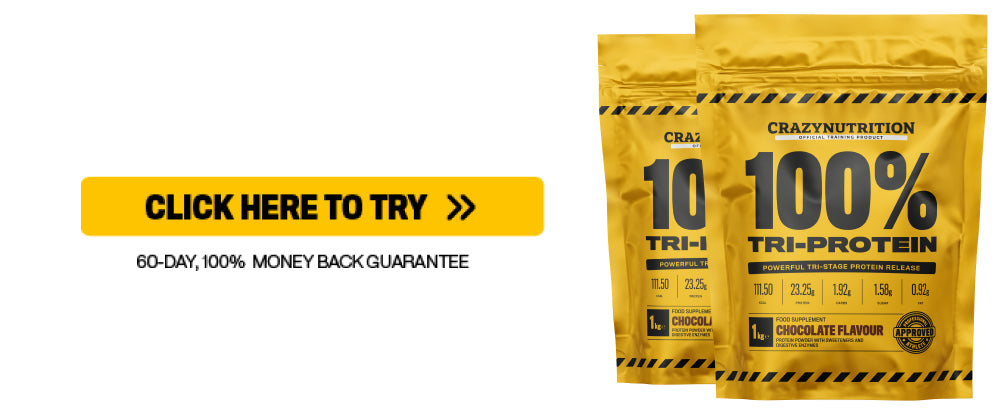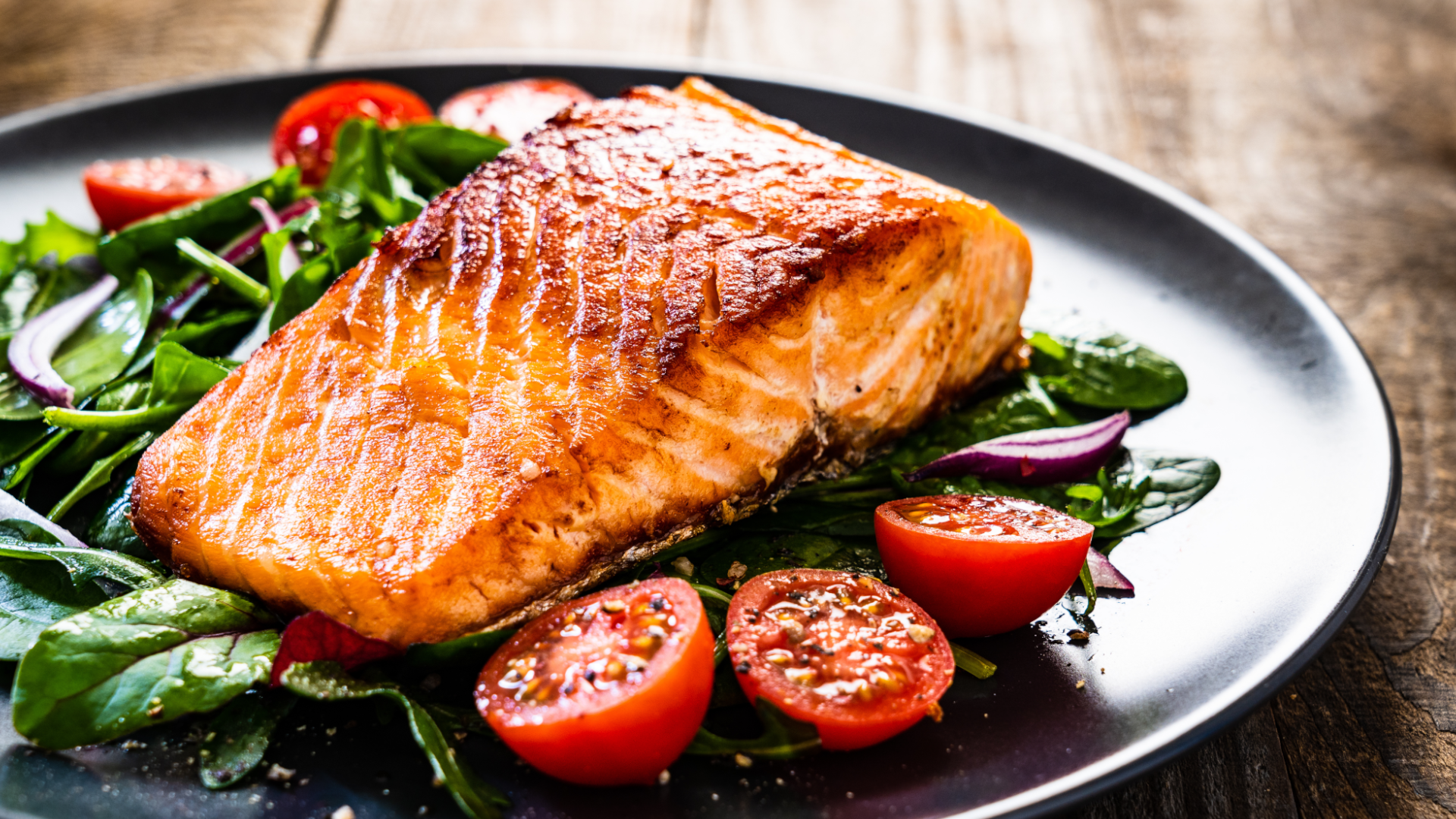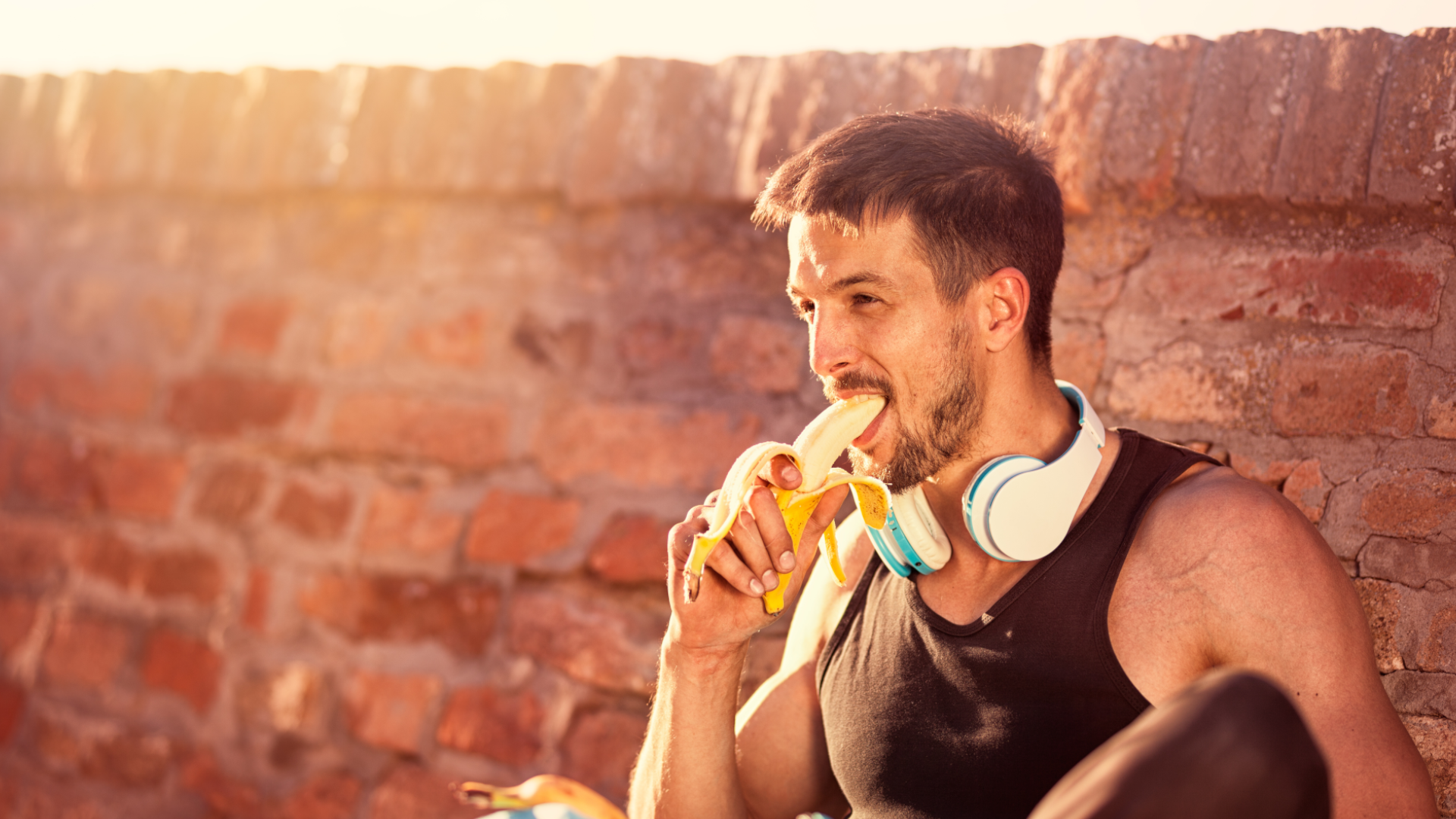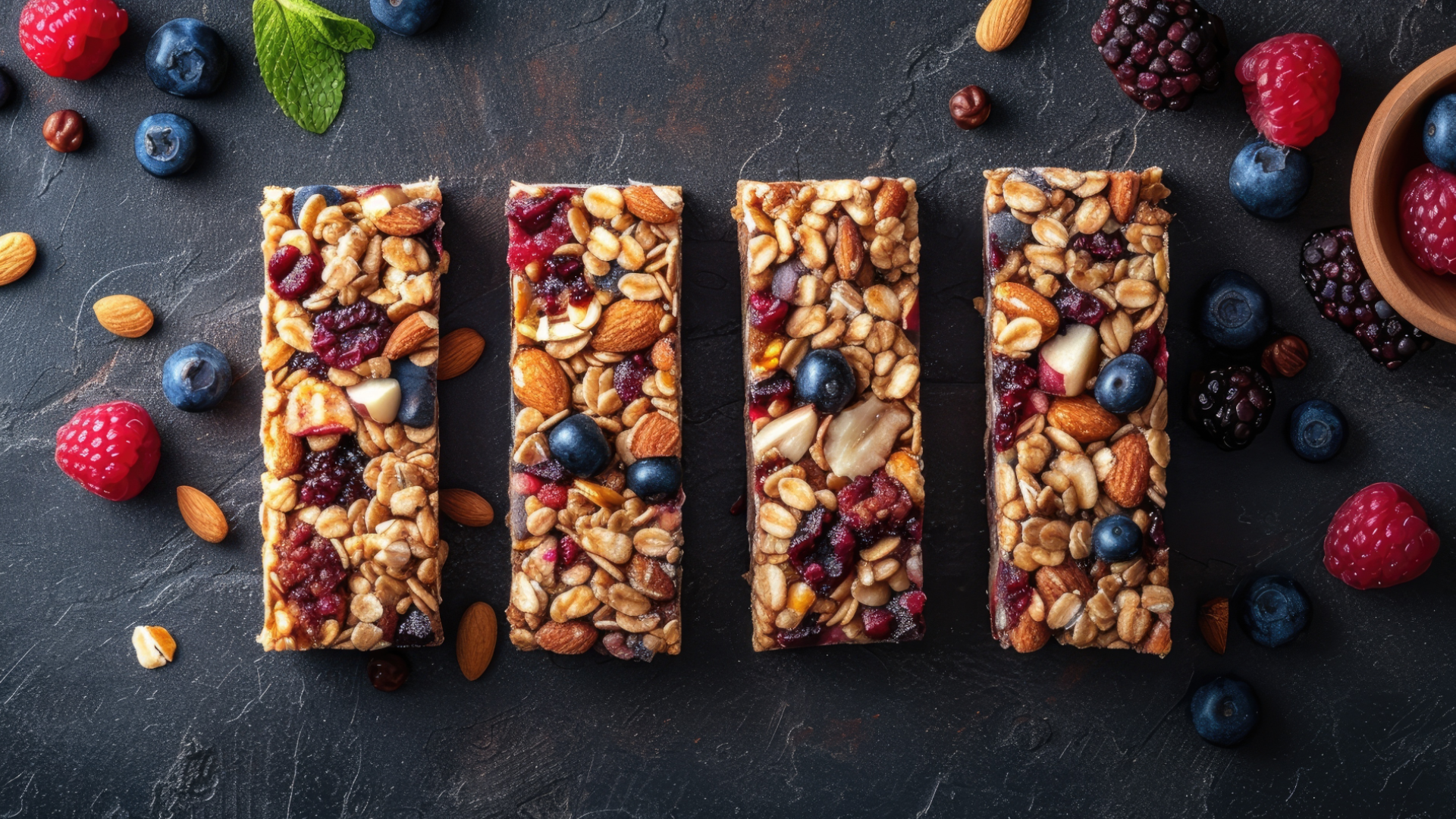Straight to the point…
|
Chicken, potatoes, pizza, fruit, protein pancakes…
What is your go-to post workout meal?
While it can be tempting to gorge yourself on your favorite foods as a reward, you must consume the right macronutrients to give your body the fuel to fire up muscle protein synthesis and ensure you reach your goals.
You have done the hard part, so how do you make sure your post-workout meal helps you get every gain possible?
But what is the best thing to eat after a workout, and when do you need to eat it?
Why is eating after a workout important?
Some people think starving yourself post-workout is the best way to ensure you meet your weight loss or lean muscle mass goals - after all, you’ve worked hard in the gym, so you don’t want to ruin it by gorging on food after.
However, if building lean muscle is your goal, you must eat post-workout to ensure that your muscles repair themselves, and to do this, you will need to eat the right foods (not just whatever you fancy).
Fueling your body before and after an exercise session is key to ensuring that you perform at your best, make maximum progress, and recover quickly and efficiently.
Muscle Growth and Recovery
Your muscle tissue experiences small tears and damage during a workout; this is perfectly normal!
Your body needs plenty of protein to achieve muscle hypertrophy after an intense workout. By starving your muscles of nutrients, you will limit the potential for increases in strength and size, and it will also take your muscles longer to recover.

While many focus on using protein for recovery, carbohydrates are just as important when repairing those aching muscles.
Improper nutrition is the number one thing that limits athletes’ progress. If you haven’t seen the results you expected. Lately, it’s time to look at what you eat after a workout.
What if I am trying to lose weight?
Many people who follow a serious workout plan are keen to lose weight, but if you don’t fuel up after a workout, you could make it harder to achieve this.
You will experience low blood sugar, a dip in motivation, fatigue and sluggishness. Worst of all, it is likely to create serious cravings for unhealthy food, causing you to binge later.
This is due to a depletion in your glycogen stores. Glycogen comes from carbohydrates; if you are eating plenty of carbs, this will be sufficient to restock your glycogen.
If you are on a lower carbohydrate diet, we still recommend a balanced post-workout meal, but consuming extra protein may help encourage your body to synthesize glycogen.
What should I be eating after a workout?
So, we’ve talked about eating the right diet post-workout, but what does that actually look like?
There are three main macros that you need to incorporate into your diet, these are:
- Proteins
- Carohydrates
- Fats
Every diet should have a balance of these three, however you may require a different ratio of these three macronutrients depending on your workout type.
Refueling after different types of exercise
Endurance and cardiovascular training depletes your electrolyte levels and your hydration levels, and you burn many calories.
This means that filling up on foods that contain carbohydrates and minerals such as sodium, potassium, and magnesium with plenty of water should be your top priority.
If you undertake a long period of cardiovascular training, such as running a half marathon or playing in a sporting match, you’ll need as much as 8 - 12 grams of carbohydrates per kilogram of body weight that day and at least 1.2 grams of protein per kilogram of body weight.
Resistance training is all about building muscle, so focus on what your muscles need most - protein. Aim for 1.5 - 2 grams of protein per kilogram of body weight and around 4 - 8 grams of carbohydrates per kilogram of body weight per day.
Greek yogurt with fruit and nuts or wholegrain toast with eggs or nut butter are ideal for mixing everything you need. But let’s look more closely at the three macronutrients.
Proteins
Include a source of lean protein in your post-workout meal i.e. foods with a high protein to saturated fat ratio.

Fish and chicken are both great, or go for beans if you are vegetarian. Plain beans are better than those made in sugary sauces, such as the classic baked bean tins.
Generally, most of your protein should come from dietary sources, however if you are struggling to get your recommended protein intake through food alone you can supplement with protein powder.
- Related content: The best way to get protein into your diet?
Carbohydrates
Carbohydrates are the primary source of your bodies energy, so it’s essential to get some in post workout.
There are multiple carb sources you can include such as rice, potatoes, pasta or bread.
Quinoa is a fantastic source of carbohydrates and contains some protein. It is also gluten-free and has plenty of fiber, magnesium, zinc, and iron, helping you replace lost electrolytes. Brown rice has similar benefits.

Bread is also a great option, even though it is high on the glycemic index. A quick hit of glucose after a workout is helpful for recovery.
What about fats?
Your diet needs to be balanced to provide your body with all the energy and nutrients needed to help you perform at your best. The mighty avocado is packed full of great nutrients and healthy fats. Nuts also provide a great fat/protein combination.

But should you eat a lot of fats right after a workout?
Some believe you should limit fat intake because fats can slow down the digestion of carbohydrates and proteins, meaning the good stuff gets to your muscles slower. However, the evidence for this is pretty limited.
Don’t forget to hydrate!
Replacing the fluids lost through sweat is just as important for recovery as eating food. So keep drinking plenty of water for a few hours after your workout.
If you are doing a particularly long, sweaty workout, a sports drink will also be helpful.
Does the timing of your post-workout meals matter?
Yes, timing matters, but rather than simply considering when you have your post-workout meal, it is best to look at the big picture.
If you go into your workout having only had one light meal a few hours prior, it is important that you replenish your glycogen and protein levels within 45 minutes.
However, if you had a large balanced meal 1-2 hours before your training session, waiting a couple of hours for your next meal will be absolutely fine.
Having a healthy, balanced diet that fuels your body throughout the day and night is more important than what you eat within 30 minutes of your workout.
Your body undergoes muscle regeneration and recovery while sleeping, which is why casein protein is so popular.
Casein protein is easier to digest and releases protein slowly over several hours, making it the perfect bedtime fuel. Casein protein is one of the proteins in our TRI-protein formula.
The easiest post-workout nutrition
One of the easiest ways to refuel your body with all three vital macronutrients is by consuming a protein shake mixed with milk. It can be drunk on the go and takes less than a minute to make.
To ensure that your post-workout nutrition contains enough protein to refuel your muscles, we recommend a protein supplement. Even if you eat all of the foods suggested in this blog, getting enough protein in your diet is really tough.
Our TRI-protein formula has the added benefit of a three-stage nutrition release which encourages optimal muscle recovery and growth after your workout.
Related Articles
What is the best way to get protein into your diet?




